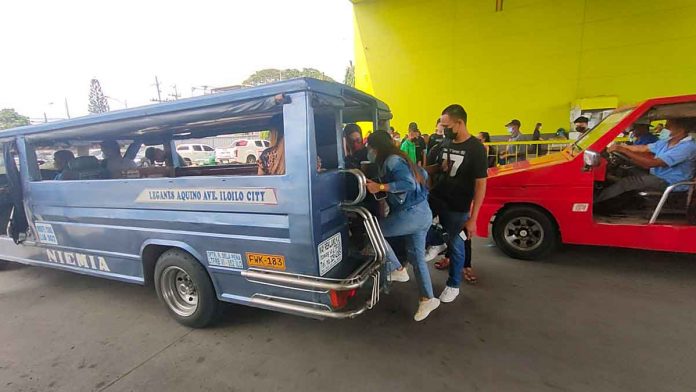
ILOILO City – The city government is rolling out its Local Public Transport Route Plan (LPTRP) this Sunday, June 12. The real test of its effectiveness, however, begins on Monday, June 13, the first working day of the week when thousands of people return to work.
The LPTRP allows only city loop jeepneys to haul into the city all provincial passengers from transport terminals located in the city’s boundary barangays. It prohibits provincial jeepneys from entering the city.
The Public Safety and Transportation Management Office (PSTMO) of the city government is appealing for the cooperation of passengers, jeepney drivers and operators.
Its head, Jeck Conlu, said the first days of LPTRP’s implementation are “transition” days where hitches may be unavoidable.
“Gapangayo gid kita sang pag-intindi anay,” said Conlu.
The city government, he said, together with the Land Transportation Franchising and Regulatory Board (LTFRB) will strive to make the LPTRP implementation smooth and less inconvenient to the public.
PSTMO personnel will be on the streets in “full force” to ensure orderly traffic, Conlu added.
The LPTRP is part of the national government’s Public Utility Vehicle Modernization Program (PUVMP) and must be implemented.
This flagship program of the Duterte administration envisions a restructured, modern, well-managed and environmentally sustainable transport sector where drivers and operators have stable, sufficient and dignified livelihood while commuters get to their destinations quickly, safely and comfortably.
Not merely a vehicle modernization program, the PUVMP also devolved the function of route planning to local government units (LGUs) as they are more versed in the terrain and passenger demand within their respective territorial jurisdiction.
LGUs are required under the program to submit their own LPTRP as a prerequisite for the opening of public utility vehicle (PUV) franchises within their jurisdiction.
In Iloilo City, there are a total of 24 rationalized and new routes and a total of 1,767 authorized units will be servicing these new routes.
Conlu earlier said 80 percent of the units will still be traditional jeepneys because the modernized jeepneys ordered by transport cooperatives are yet to be delivered.
Mayor Jerry Treñas rejected some transport groups’ call for the suspension of the LPTRP.
“We will never know (how it works) until we implement it,” said Treñas.
The Metro Iloilo Transport Service Cooperative (MITSCOO) and the Iloilo City Alliance of Drivers Association (ICADA) warned of massive public inconvenience if the plan is enforced due to a perceived insufficiency in the number of city loop vehicles that would haul passengers from the transport terminals to the city.
“We will proceed with the implementation. If there are problems, we will immediately resolve them,” said Treñas.
The Western Visayas Transport Cooperative (WVTC) which operate modern jeepneys and still have member-operators with traditional jeepneys assured the public they have more than enough units to serve passengers.
According to Raymundo Parcon, WVTC president, members have been meeting almost every day in preparation for the LPTRP implementation by June 12.
WVTC is composed 17 city-based transport associations. Parcon said they have sufficient number of jeepneys to move city-bound people from the transport terminals, and even serve new city routes that LPTRP will also open./PN





